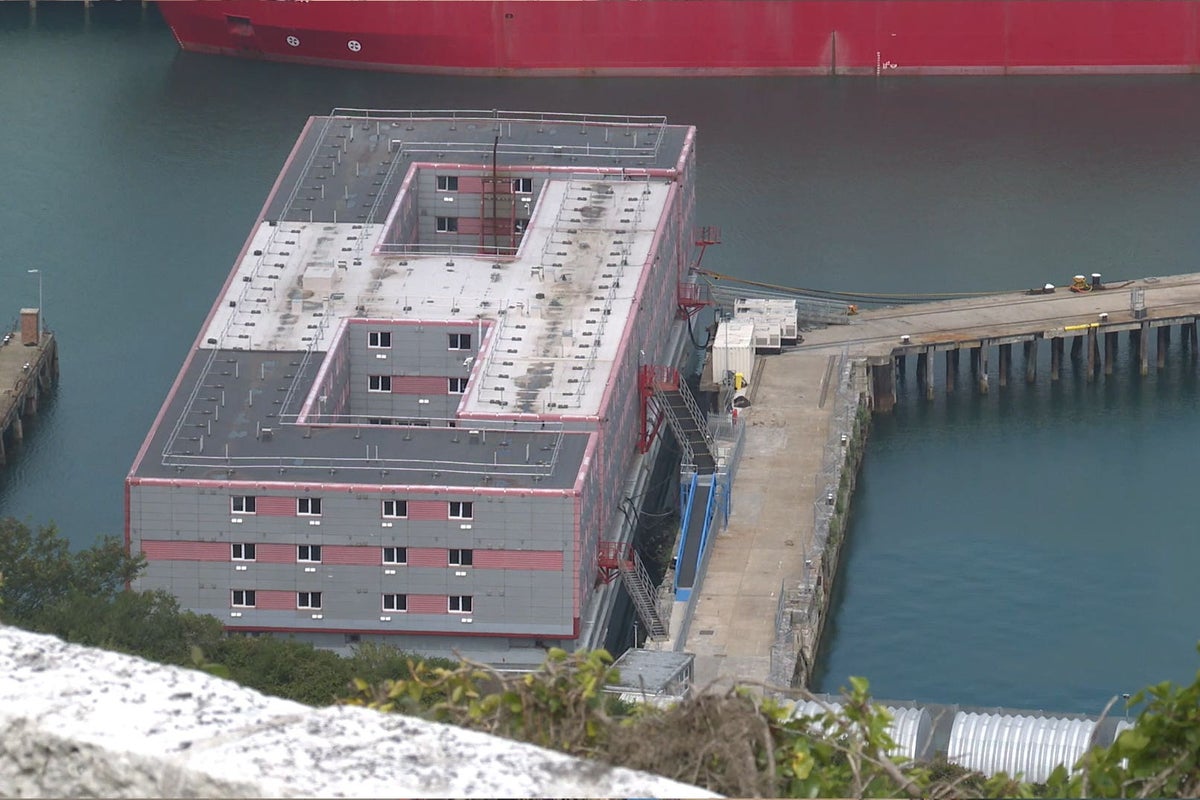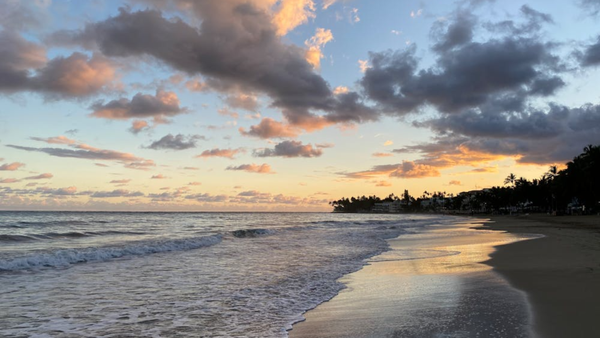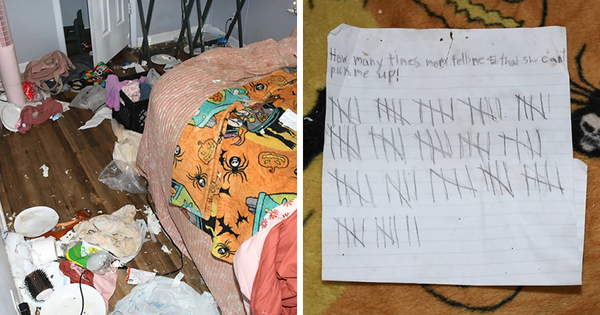
The government has vowed to continue trying to house asylum seekers on barges, despite evacuating the Bibby Stockholm after dangerous bacteria was found in the water system.
Test results confirmed the presence of Legionella on 7 August - the same day the first migrants were put on board - and questions are mounting over why people were housed there for four more days.
Amid an ongoing row over when the Home Office was informed of the discovery, the prime minister’s official spokesman defended the government’s response on Monday.
The Bibby Stockholm barge is moored in Portland Harbour— (PA Wire)
“We will be communicating with all relevant groups to see if there are any lessons that can be learned, as you would expect in any public health situation,” he said. “We remain confident that we have acted quickly once informed.”
Downing Street insisted that barges remain an “appropriate way to find alternative accommodation to hotels”, despite condemnation from opposition parties, refugee charities and medical groups.
Ministers have claimed that housing people on the barge and other “alternative” sites, including disused military bases and a former prison, will reduce the cost of housing asylum seekers in hotels.
Rishi Sunak has also made it one of his five priorities to “stop the boats”, and pledged to clear the UK’s “legacy” asylum backlog by the end of 2023.
Below, The Independent takes a look at the history of the barge and the timeline of events that led to it being evacuated.
29 March - Immigration minister announces government is looking at accommodation vessels
Robert Jenrick tells parliament the government was “exploring the possibility of accommodating migrants in vessels, as they are in Scotland and in the Netherlands”.
He said the move “will not end the use of hotels overnight”, but added: “Alongside local dispersal and other forms of accommodation, which we will bring forward in due course, they will relieve pressure on our communities, and manage asylum seekers in a more appropriate and cost-effective way.”
The plans were immediately attacked by politicians including Dorset MP Richard Drax, who said plans to put the barge in Portland should be “totally and utterly out of the question”.
5 April - Government confirms plan to house migrants on Bibby Stockholm
The government laid out more detailed plans, naming the Bibby Stockholm as the chosen vessel and saying it would be berthed in Portland, Dorset.
It quickly emerged that the 93-metre long barge, being leased from Liverpool-based Bibby Marine Limited, previously saw at least one person die and reports of rape and abuse on board when it was used by the Dutch government to detain asylum seekers.
The Home Office said only “single adult males” would be housed on the vessel, and that it needed to move asylum seekers out of hotels that are currently costing more than £6m per day.
“It will provide basic and functional accommodation, and healthcare provision, catering facilities and 24/7 security will be in place on board, to minimise the disruption to local communities,” a spokesperson added.
“Migrants are due to be moved onto the Bibby Stockholm in the coming months. The Home Office is in discussions with other ports and further vessels will be announced in due course.”
9 May - The Bibby Stockholm arrives in the UK
The barge arrives in Falmouth, Cornwall, after being towed from its former berth in Italy.
Major work begins to increase its capacity from 222 to more than 500, by packing each cabin with bunk beds, while other safety checks and rennovation work is carried out.
Meanwhile, Dorset Council considers legal action, but finds itself unable to challenge the barge’s planned mooring in Portland because of a private deal between private port operators and the Home Office.
The Bibby Stockholm accommodation barge being towed to Falmouth— (PA)
17 July - Barge arrives in Portland, Dorset
Despite criticism from some locals, Tory MPs, Labour and campaigners, the government presses ahead with plans to house asylum seekers on the Bibby Stockholm.
Work on the barge in its Falmouth dry dock took longer than expected, and its voyage onwards to Dorset was delayed by bad weather. It arrived in Portland on 17 July, where it was met with fresh protests.
Days later, the Home Office invited journalists for a tour of the empty barge, saying it was safe and suitable accommodation.
7 August - First occupants board barge
Following a series of delays due to safety concerns, the first asylum seekers are transferred to the barge on the same day Dorset Council received the test results.
A coach and taxis are seen arriving at Portland Port throughout the day, as local residents gathered at the entrance with a mixture of “welcome” signs and protest placards.
Around 50 people had initially been expected to be in the first group moved to the vessel, but just 15 people were moved on on the day.
The Home Office blamed “last-minute legal challenges” for the smaller-than-expected group, but The Independent reported that it had violated its own guidance by selecting disabled asylum seekers and torture victums for the barge.
7 August - Dorset Council receives results of Legionella test results
Dorset Council says it received the preliminary results of Legionella tests, from a water sample taken on 25 July, on 7 August. The tests found traces of the bacteria in the water system onboard the barge. This has been confirmed by the UK Health Security Agency (UKHSA).
“Dorset Council’s Environmental Health team informed the operator (contractors – Corporate Travel Management [CTM] and Landry and Kling) as the responsible body for the barge, employed by the Home Office, of the sample results on 7 August,” a statement said. “As their contractor, it is their responsibility to keep the Home Office informed.”
8 August - council meets with barge operator and reports results to UK Health Security Agency
Dorset Council’s environmental health team visited the barge again on 8 August to discuss the Legionella results with the operator, claiming a Home Office official was “verbally informed in a meeting” that day.
The Home Office said it was not formally told by email until 9 August, but the council said an official was present at a “Place and Regulatory subgroup meeting” which also included council officers, barge operators Landry & Kling and contractors CTM.
At the same time, the government had been sending out letters threatening asylum seekers who refused to board the barge with homelessness.
Portland saw both pro and anti-refugee protests— (Getty Images)
9 August - meetings continue
Dorset Council said another visit was made to the Bibby Stockholm on 9 August to take further samples.
“There was concern about proposed control measures and Dorset Council sought advice from the UK Heath Security Agency (UKHSA) on 9 August,” a statement said.
“The council followed technical guidance on what to do when a positive sample is received. The contractor was advised of the situation and further inspection made to obtain further information and additional samples and the UKHSA then contacted.”
On the evening of 9 August, Dorset Council alerted the UKHSA local health protection team that they had concerns regarding potential human health risk and were seeking public health guidance.
The UKHSA said that Dorset Council contacted its local health protection team in the evening, saying it had concerns regarding potential human health risk from the test results and was seeking public health guidance.
Dorset Council’s environmental health team has regulatory enforcement responsibility for health and safety provision on board the Bibby Stockholm, according to the UKHSA.
10 August - Dorset Council, UKHSA, Home Office officials and contractors meet to discuss Legionallea
On the morning of the 10 August, UKHSA said it stood up an incident management meeting with Dorset Council, the Home Office and its contractors to discuss the findings with public health experts and agree any immediate or longer-term risk mitigations.
Attendees included representatives of the NHS, Dorset Council and the Home Office. The meeting concluded with a number of recommendations, including that no more passengers should be boarded onto the Bibby Stockholm while a risk assessment was conducted.
These recommendations were clarified and agreed with those attending and later confirmed in writing to the Home Office. A second incident management meeting and risk assessment took place that afternoon.
A coach bringing migrants to board the barge— (Getty Images)
10 August - barge evacuated
The 39 asylum seekers who were on the vessel were removed from it, along with all staff, in the evening.
The Independent understands that when news broke of the evacuation around lunchtime, residents were still on board and had not been told of any danger from the water.
Official letters issued to residents later in the afternoon read: “We are writing to inform you that it is necessary to temporarily relocate you from the Bibby Stockholm as a precautionary health and safety measure.
“CTM, who operate the Bibby Stockholm, have sourced alternative accommodation and will provide transport to take you to that accommodation.
“They will also arrange for you to have a health check prior to disembarkation with the medical staff onboard. There will be additional healthcare provision at the hotel, should you require it.”
The letter listed the symptoms of Legionnaires' disease, calling it “a rare but potentially serious illness” that spreads through droplets of water when inhaled in aerosol form.
As tests continued on Friday, all those on board were moved to government hotels, increasing the cost of the already extortionate barge project that the prime minister claimed would reduce hotel use.
The Bibby Stockholm is designed to house up to 500 asylum seekers— (PA)
13 August - Blame exchanged for delay acting on Legionella test results
The Telegraph claimed that Dorset Council did not tell the Home Office or UKHSA officials about the Legionella bacteria for several days after it was discovered.
In response to suggestions that it kept the results of the Legionella test hidden, a spokesperson for the council claimed in a statement that it followed “the appropriate technical guidance throughout”.
A spokesperson said: “Dorset Council’s Environmental Health team informed the operator (contractors – CTM and Landry and Kling) as the responsible body for the barge, employed by the Home Office, of the sample results on 7 August. As their contractor, it is their responsibility to keep the Home Office informed.”
CTM and Landry and Kling did not immediately respond to requests for comment.
14 August - Health secretary insists ministers not made aware until late on 10 August
Health secretary Steve Barclay insisted ministers were not made aware of Legionella risk until Thursday nighht— (PA Wire)
Steve Barclay, the health secretary, claimed that the government took “very quick action” to move asylum seekers from the Bibby Stockholm barge after traces of Legionella bacteria were found and insisted that ministers were not made aware of the test results until the night of 10 August.
He did not deny, however, that Home Office officials may have been made aware earlier. Mr Barclay told Sky News: "As soon as ministers were notified on Thursday night, there were some concerns with that, they took instant action.
"It may be the council notified the Home Office, that is an issue for those in the Home Office to respond to, obviously this is a Home Office lead.”
He added: "My understanding from colleagues in the Home Office is it was notified to Home Office ministers on Thursday and they then took very quick action as a result."
A Home Office spokesperson said: “The health and welfare of asylum seekers remains of our utmost priority. All asylum seekers accommodated on the Bibby Stockholm have been disembarked as a precaution and moved to alternative accommodation.
“The Home Office and our contractors are following all protocol and advice from Dorset council’s environmental health team, UK Health Security Agency and Dorset NHS who we are working closely with.”







